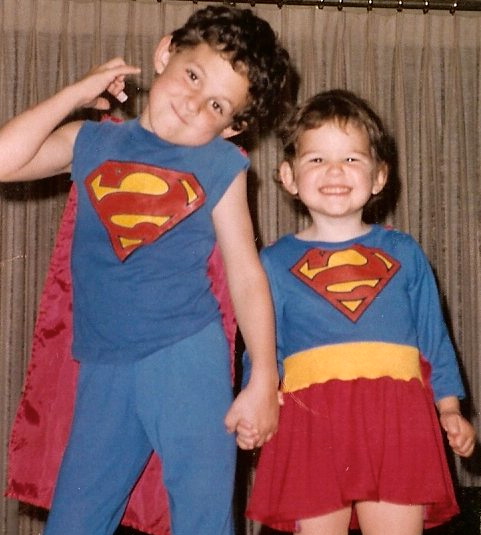Take a moment and pretend with me that you are a strong superhero, fueled by empathy, compassion and a brave heart. I don’t know about you, but my chest puffs up and my shoulders roll back—I feel fearless and courageous with each deep breath. Now try the other option, cowering in fear from an unknown assailant. My breath shortens, my shoulders tense up, and my stomach is already in knots.
Ok, so thankfully that wasn’t real life. But it’s incredible to me to see how much the mind can impact physiological responses in my body. Just by calling these scenarios to mind, I was able to conjure up a physical reaction.
In real life, that sort of thing happens all the time. I get stressed about an upcoming deadline—my heart rate quickens, my shoulders tense, etc. Or, I think about something I’m feeling grateful for—my heart opens, I relax, and my body loosens.
How do we teach children the impact that their minds have on their bodies?
Through play of course!
Take a few minutes with your child to come up with a handful of personalities to act out together. Here are a few I came up with:
- A ballerina or musician nervously getting ready for opening night
- A brave lion
- A grumpy troll
- A joyful child, filled with wonder at his or her first trip to Disneyland
- A business person on the way to a very important meeting
- An elderly person
- A superhero, ready to save the day
- Someone feeling suspicious of the people surrounding them
- A lost tourist
- An explorer mapping new terrain
- [Your ideas here!]
- I’d love to hear what other personalities you come up with! Please post them in the comments!
Together, write your ideas on slips of paper and take turns drawing them from a hat to act out together or for one another. If you don't have a child, you can always act some of these out with a friend or at your mirror!
Once you have exhausted all of your ideas discuss which personality you each enjoyed the most. Why did you like that particular personality? Which personality was the most uncomfortable to do? What did each of you notice happening in your bodies during your play-acting? You may need to offer some examples that you noticed: tense shoulders, happy heart, scrunched forehead, etc.
The next time you or your child feels anxious or nervous about something, try parading around the house like a brave superhero for a bit and see what happens. :-)





